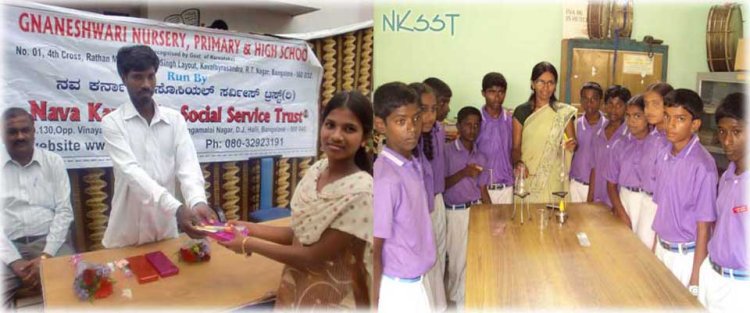About Us
About Us

Mr. I. JOSEPH was elected as President and members were elected for the Governing Board to assist and guide the President and the General Secretary. The Director of Income-Tax (Exemptions) has given the status of "Public Charitable Trust" under section 12A of 1961 and donations made to this Trust u/s 80G(5)(vi) of the I.T.Act, 1961. are exempted Right from its inception.

NKSST has been actively involved in various programs and projects to help the needy. As a result, the requirements of many people have been met as their needs are being met on time. Awareness is being created about the NKSST among the elite people in the society so that they could effectively share the joy even with their neighbors and friends.
Increasing public attention on poverty and helping shift negative public perception by showing that poverty can be reduced in India by taking certain actions.
Poverty, food prices and hunger are inextricably linked. Poverty causes hunger. Not every poor person is hungry, but almost all hungry people are poor. Millions live with hunger and malnourishment because they simply cannot afford to buy enough food, cannot afford nutritious foods or cannot afford the farming to buy enough food, cannot afford nutritious foods or cannot afford the farming supplies they need to grow enough good food of their own. Hunger can be viewed as a dimension of extreme poverty. It is often called the most severe and critical manifestation of poverty.
we build the capacity of women and men to move beyond poverty, training them in the skills, methods, knowledge, and leadership needed to take self-reliant actions so they can meet their own basic needs, improve their communities and build better futures for themselves and their children.
Rural households are the most heavily burdened by the consequences of poverty and hunger. In addition to causing hunger, poverty limits a rural community's ability to invest in its own development. Over 30 percent of rural girls living in poverty are kept out of school to save money, as opposed to the 15 percent of urban girls, not in school. Studies have shown that lack of general education leads to higher adolescent birth rates; births that in turn over-burden an already economically strained community, perpetuating a cycle of gender inequality, poverty, and hunger.
